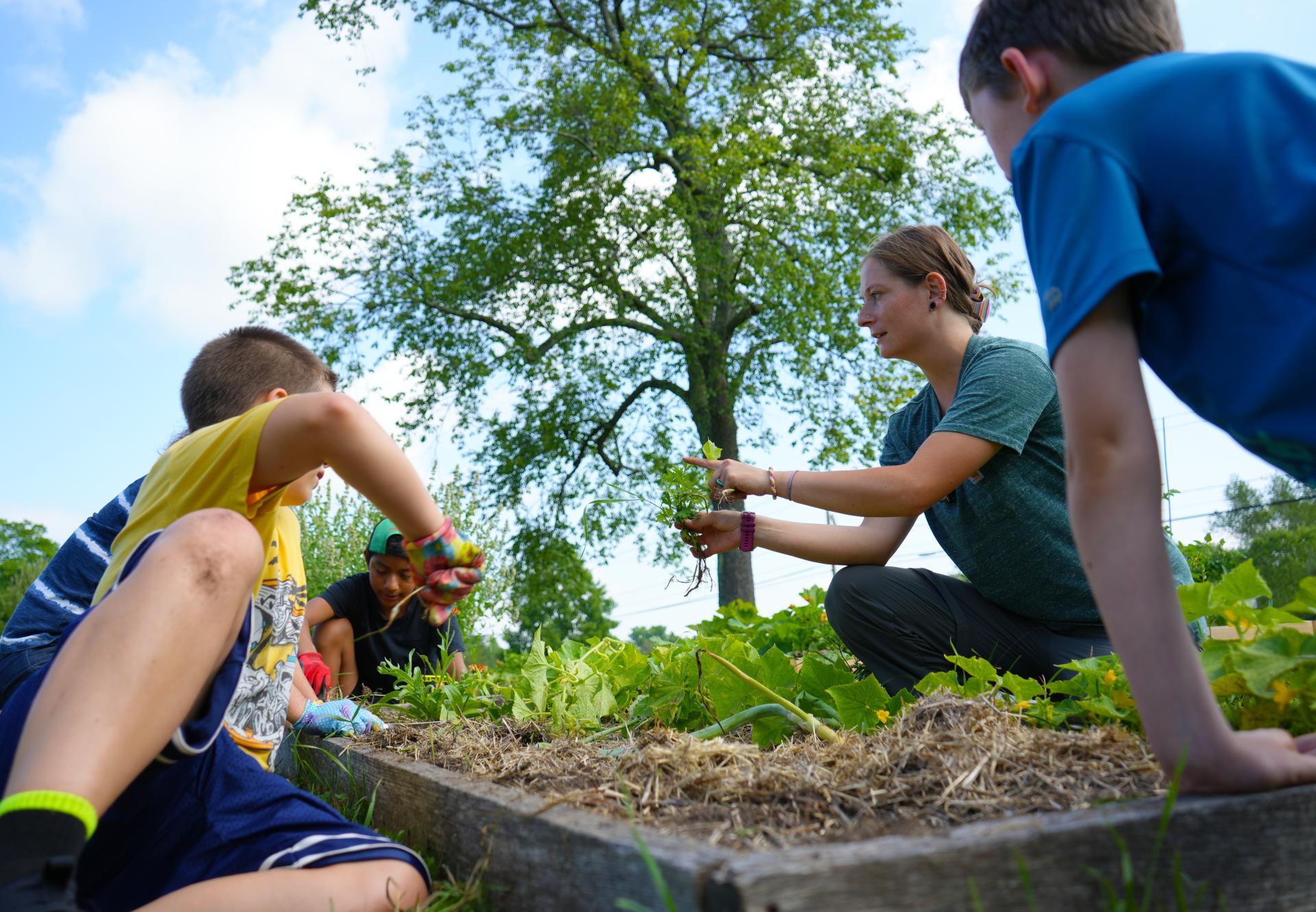You are here
Be A Better Gardener: Biodiversity
Be A Better Gardener: Biodiversity
by Thomas Christopher
Like so many gardeners, the person who inspired me to take an interest in this craft was my mother. She taught by example. She spent as much time as she could spare from homemaking and later from her career as a social worker outdoors in her garden. She’d introduce me to favorite plants, point out any unusual birds or other creatures that stopped by, and when I began gardening myself was always sharing reference works and useful advice.
As our society becomes increasingly urban, however, this sort of inheritance is becoming rarer. How do you share a love of gardening with your child when you have no access to the soil? Jean Devine has been working on a response to that dilemma.
Jean has had an amazingly varied professional experience. She majored in European history at Brown University but took an urban planning course in her senior year that included an internship in Brown’s home city, Providence, Rhode Island with a non-profit exploring what impact redevelopment could have on Providence’s urban core. That led to a job after graduation in the city government where she worked with a landscape architect in planning the renovation of several of Providence’s parks. This eventually led to a renaissance of the cityscape and a transformation of that city. Jean, however, fell afoul of Providence’s notoriously vindictive mayor, Buddy Cianci, who disapproved of her political convictions and forced her out. She went on to pursue careers in non-profit management, business, and biotech.
Growing tired of the biotech world, she refocused back on urban landscapes, founding a habitat restoration firm, Devine Native Plantings, LLC, in the metropolitan Boston area in 2021. Jean helps property owners in surrounding residential communities audit the existing species on their sites, assess site conditions, and define and design spaces to add native plants that will boost food and habitat for at-risk bees, butterflies, birds, and wildlife. Simultaneously, she co-founded the Mystic Charles Pollinator Pathway Group (MCPPG), an organization that focuses on supporting the struggling populations of pollinators through education and the promotion of biodiversity and habitat enhancement.
Mentoring the young has always been important to Jean. On the Devine Native Plantings website (www.devinenativeplantings.com) she identifies herself as “chief seed sower,” which she admitted to me in a recent interview of the Berkshire Botanical Garden podcast, “Growing Greener,” is a description that is metaphorical as well as factual. When not starting native plants for habitat restoration projects, Jean took education courses at Harvard University’s Division of Continuing Education, and she turned that experience to good use in “Biodiversity Builders,” a program she founded to educate young people (high school and college students) from Boston’s inner ring of communities: Cambridge, Arlington, and Belmont. A six-week paid internship, Biodiversity Builders brings together a team of young people each summer to combine hands-on experience with habitat restoration with – and I think this is what makes the program unique – mentorship in business and entrepreneurship.
The interns work at removing invasive plants in private and public settings and help to design and install native plant communities as replacements. Along the way, while learning from guest speakers and field trips, the interns are also tasked with conceptualizing an environmentally oriented business, and with organizing, promoting, and hosting a native plant sale.
Moving habitat restoration from the status of volunteer work to that of a possible future career has proved inspiring. Graduates of the program have sought her help in organizing environmentally-themed clubs in their high schools, and some Biodiversity Builder graduates have gone on to study various aspects of environmental science.
As Jean Devine puts it, “I have many mottos, but one of them is the urgency of now. The best time to plant a tree was thirty years ago. But the best time to plant a native plant garden is now. Don’t put it off, get that plant into the ground because you are starting the life cycle of some insect or creature.”
And inspiring the next generation of environmentally responsible gardeners, too.
To listen to the rest of my conversation with Jean Devine, log onto the Berkshire Botanical Garden’s “Growing Greener” podcast at www.berkshirebotanical.org.
Be-a-Better-Gardener is a community service of Berkshire Botanical Garden, located in Stockbridge, Mass. Its mission, to provide knowledge of gardening and the environment through a diverse range of classes and programs, informs and inspires thousands of students and visitors each year. Thomas Christopher is a volunteer at Berkshire Botanical Garden and is the author or co-author of more than a dozen books, including Nature into Art and The Gardens of Wave Hill (Timber Press, 2019). He is the 2021 Garden Club of America's National Medalist for Literature, a distinction reserved to recognize those who have left a profound and lasting impact on issues that are most important to the GCA. Christopher’s companion broadcast to this column, Growing Greener, streams on WESUFM.org, Pacifica Radio and NPR and is available at berkshirebotanical.org/growinggreener.
Help Our Garden Grow!
Your donation helps us to educate and inspire visitors of all ages on the art and science of gardening and the preservation of our environment.
All Donations are 100 percent tax deductible.


